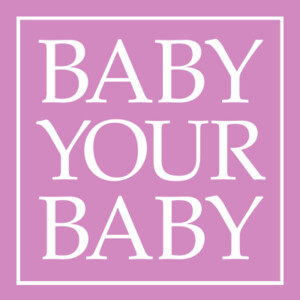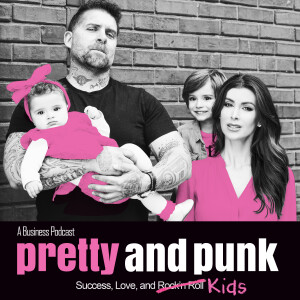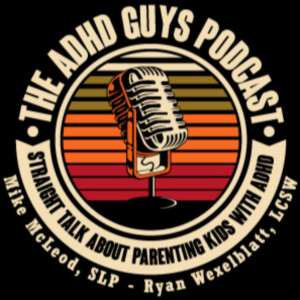

Episode List

How the WIC Program can help your family
WIC supports lower income families with over four decades of proven success by improving health outcomes for women, infants and children. WIC is a supplemental nutrition program designed to help pregnant women, new mothers, and children under the age of 5 eat well and stay healthy.Jade Elliott sat down with JoDell Geilmann-Parke, WIC Outreach Coordinator for Salt Lake County Health Department, on this episode of the Baby Your Baby Podcast to discuss the program and upcoming changes.Foods that meet high nutrition standards can be purchased with WIC grocery vouchers at a variety of participating stores. These foods vary depending on an individual’s nutrition needs but may include infant formula and cereal, a large selection of fruits and vegetables, eggs, milk, cheese, peanut butter and whole grains.In addition to food vouchers, WIC provides nutrition education and extensive breastfeeding support to participating families. WIC strives to reduce health disparities in the community by encouraging healthy eating habits, providing access to healthy foods, and promoting breastfeeding as the optimal source of nutrition for infants.WIC services are currently reaching less than 40% of eligible individuals in Utah.The big news for 2020 is that Utah WIC is converting from paper vouchers to smart cards and will be available throughout the state at all county health departments by the end of the year. E-WIC will streamline the shopping and checkout process and make using WIC easier for participants. WIC has also modernized their website to include a client portal and created a WIC Shopper APP to make WIC services more accessible.There are income eligibility requirements to participate in WIC. You can visit https://wic.utah.gov/ to check eligibility and find out how to apply or call 1-877-WICKIDS.The Baby Your Baby program provides many resources for all pregnant women and new moms in Utah. There is also expert advice from the Utah Department of Health and Intermountain Healthcare that air each week on KUTV 2News.See Privacy Policy at https://art19.com/privacy and California Privacy Notice at https://art19.com/privacy#do-not-sell-my-info.

The importance of reading to your children
It’s never too early to start reading with your baby. Reading with your baby has multiple benefits.Jade Elliott sat down with Tyson Tidwell, a pediatrician with Intermountain Healthcare, to talk not only about why to read with your baby, but also tips for how and when to do it.Why reading to your baby is so importantWhen parents talk, read, and sing with their babies, connections are formed in their young brains. These connections build language, literacy, and social and emotional skills at an important time in a baby’s development. These activities also strengthen the emotional bond between parent and child and helps your child reach social and developmental milestones.Hold your child in your arms and read with emotionInfants as young as a few days or weeks old can know and prefer their parents’ voices and faces. Although they may not understand words, they’ll respond to the emotion in your voice and the expression on your face. They love to look at pictures with bright colors and feel secure when they’re in your arms.Choose colorful and sturdy booksAs babies get older, they’ll reach out to hold a book and then put it into their mouths to explore it. Board books and books made of fabric or with thicker pages are more durable for very young children. You can borrow children’s books for free from your local library or purchase some of your own. Look for colorful illustrations or photos. Some books have things with texture that can be touched, which makes them even more interesting.Ask your pediatrician about the Reach out and Read program which offers free books starting at your baby’s 6 month well visit. You can receive a free book at your child’s well check visits through age five, for a total of eight free books. For more information visit https://www.reachoutandread.org/Plan a special reading timeActive young children may lose interest in a book after only 1-2 minutes. Follow their lead, but keep reading, talking, and singing with your baby regularly and his interest and attention span will grow. Make this a special time. Give your baby your full attention. Turn off the TV and computers and put down your phone.Read together every dayAs babies grow into toddlers, reading aloud together can be a very helpful routine, especially when it’s part of your regular calming bedtime routine. Young children love having choices. Let them choose the book to read. Toddlers quickly develop favorites and may ask you to read the same story over and over, so offer choices you like too!Talk about the bookToddlers can point to pictures of objects (Show me the tree) and answer questions (Which one says moo?) As their language grows, they may be able to name the pictures you point to or finish the sentences in a book. Sometimes they even pretend to read the book themselves. As they get older they learn to point to letters in the alphabet or to count some of the pictures.Make reading part of your routineBuilding routines for meals, play, and sleep help children know what to expect and what is expected of them. Listen to our podcast on bedtime routines here.Keep reading togetherEven when your child can read by themselves, you can still read stories to them that are at a higher reading level than books they can read on their own. They will look forward to the next chapter and you will make lasting memories.The Baby Your Baby program provides many resources for all pregnant women and new moms in Utah. There is also expert advice from the Utah Department of Health and Intermountain Healthcare that air each week on KUTV 2News.See Privacy Policy at https://art19.com/privacy and California Privacy Notice at https://art19.com/privacy#do-not-sell-my-info.

Tips for surviving morning sickness
You’re excited to be pregnant. You’re supposed to be glowing, but instead you look kind of green. If you feel nauseous or you just threw up, it’s probably morning sickness.Jade Elliott spoke with Hannele Laine, here an OB/Gyn from Intermountain Healthcare To help you know how to make it through morning sickness.Morning sickness is common and may be under-treatedAccording to the American College of Obstetricians and Gynecologists, 50-80 percent of pregnant women experience nausea and 50 percent experience vomiting or retching.Morning sickness may be undertreated. It often begins prior to the first appointment, so women sometimes wait for the appointment rather than asking for help. In addition, women may not seek treatment because they believe it is common and usually temporary or because they’re concerned about the safety of taking medications while pregnant.What causes morning sickness?The specific cause of vomiting during pregnancy is not known. One hypothesis is that it due to the change in hormones levels during pregnancy.Common myths about morning sickness:1.It only occurs in the morning. False: You can have morning sickness any time of day.2.It’s resolves after the first trimester. False: A few women have it last into the second and sometimes even into the third trimester.3.It harms the baby. False: Typical morning sickness does not harm the fetus.What increases your risk of severe morning sickness?Severe nausea and vomiting of pregnancy is called hyperemesis gravidarum. It is more likely to occur with these risk factors:A twin or triplet pregnancy.A previous pregnancy with nausea and vomiting.In women who have family members with nausea and vomiting of pregnancy.A history of motion sickness or migraines.Being pregnant with a female fetus.Simple ways to help reduce morning sickness:Eat small meals, every 1-2 hours to avoid a full stomach and to avoid hunger.Eat bland, dry foods like crackers, cereal, toast or baked potatoes.Eat some protein with every meal.Avoid spicy or fatty foods.Eat something before you get out of bed. Keep crackers on your nightstand.Take prenatal vitamins at night after a meal or switch to folic acid alone.Avoid unpleasant smells as they may trigger nausea.Try ginger capsules or candies, ginger ale or tea made with real ginger.Wristbands that put pressure on or electrically stimulate a pressure point on the wrist may help.How to prevent morning sickness from becoming severe:Avoid getting dehydrated. Try taking little sips all day of something like Gatorade.Seek treatment early to prevent severe symptoms requiring hospitalization.Talk to your provider about how to manage your morning sickness and review possible medications that can help.Keep your prenatal visits and call if you are having trouble between visits.When to call or see your provider:If nausea or vomiting is severeYou pass only a small amount of urine or it's dark in colorYou can't keep liquids downYou feel dizzy or faint when you stand upYour heart races or is poundingYou’re losing weightIf nausea or vomiting begins after nine weeks of pregnancySevere nausea and vomiting could be caused by something else:Warning signs that your nausea and vomiting may be due to another cause:abdominal pain or tendernessfeverheadachethyroid enlargement or swelling on the front of the necknausea and vomiting that occurs for the first time after nine weeks of pregnancy.If you have severe nausea and vomiting, your provider may want to do additional tests to evaluate other causes of the symptoms. Some medical conditions can cause nausea and vomiting during pregnancy such as an ulcer, food-related illness, thyroid or gallbladder disease.For more information visit: https://intermountainhealthcare.org/services/women-newborn/For additional information, click here.The Baby Your Baby program provides many resources for all pregnant women and new moms in Utah. There is also expert advice from the Utah Department of Health and Intermountain Healthcare that air each week on KUTV 2News.See Privacy Policy at https://art19.com/privacy and California Privacy Notice at https://art19.com/privacy#do-not-sell-my-info.

Tips for helping your baby through teething
You don’t think much about your teeth unless there’s a problem. For babies who can’t communicate yet with words, teething can be a difficult time. Their gums become inflamed and tender as the teeth get closer to the surface and they take time to erupt or fully break through the gums.Jade Elliott spoke with Pediatrician, Jenna Whitham, MD, Intermountain Healthcare, to discuss some tips for when your baby is teething.When will that first tooth appear?Babies typically don’t have teeth when they’re born, but on average babies get their first tooth at about six months of age. Typically, they have a complete set of 20 “baby” teeth by 30 months of age. The lower central incisors usually come in first and the molars last.Signs of teethingTeething is a process that all children experience. Prior to tooth eruption the gingiva or gums may appear blue-ish and swollen. The symptoms seen most consistently with children immediately prior to and right after a tooth erupts are: biting or putting their mouth on things, drooling, rubbing their gums and fussiness. Sometime children may show less interest in eating solid foods and have mild elevations in temperature.But teething does not cause thick congestion, severe diarrhea, vomiting, cough, fevers or inability to drink liquids/take formula. If your child is having these types of symptoms, call your baby’s doctor to find out if you need to bring your baby in for a visit.Four simple ways to manage teething pain1.Teething toys may be used, but liquid filled teething rings should be chilled in the refrigerator, not the freezer). Be sure to sterilize in boiling water before use.2.Teething biscuits, crackers or cold food items like frozen yogurt or fruit popsicles may be used for children older than nine months who are used to eating solid foods.3.Tylenol (acetaminophen) and Advil or Motrin (ibuprofen) may be used for children over six months if needed, but you should verify correct dosage with your child’s doctor.4.Distraction – play with your baby or take them outside or for a ride in the strollerWhitham does not recommend using topical medications containing Benzocaine (Oragel) due to risk of overuse or ingestion.Tips for breastfeeding once your baby has teethMost moms can keep breastfeeding without difficulty through tooth development. If baby bites, the feeding should be over immediately, baby will quickly learn that biting is not ok.What foods are appropriate as teeth emergeBabies as young as four months who have good head control can start pureed baby foods, and at six months we encourage parents to start solid food introduction. In fact, despite not having a full set of teeth, babies as young as nine months can “chew” solid foods by mashing bites with their jaw regardless of the number of teeth that have emerged.When to start brushing baby’s teethI recommend parents start brushing baby’s teeth with a soft bristled brush when they notice the first tooth emerge. I recommend using a fluoride containing children’s toothpaste. Use a grain of rice sized amount or less depending on how many teeth are to be brushed. Make tooth brushing a twice daily habit.For some ideas to make brushing teeth fun, click here.Preventing Baby Bottle Tooth DecayYou can help prevent your baby from developing cavities or what is called Baby Bottle Tooth Decay or by beginning an oral hygiene routine within the first few days after birth. Start by cleaning your baby’s mouth by wiping the gums with a clean gauze pad. This helps remove plaque that can harm erupting teeth.If you are bottle feeding, only give your baby a bottle with formula, breast milk or after one year of age, cow’s milk, and avoid giving them sugary beverages like juice or soda. Infants should finish their bedtime and naptime bottle before going to bed and not fall asleep with a bottle in their mouth.Do babies need fluoride drops?This depends on where you live. A good resource for this information is your county health department web site.Intermountain Healthcare has pediatric dentists and adult dentists.It’s important to establish care with a pediatric dentist by 18-24 month of age. Intermountain has pediatric dentists and family and special needs dentists. For more information about pediatric dentistry, click here.For more information about family dentistry, click here.The Baby Your Baby program provides many resources for all pregnant women and new moms in Utah. There is also expert advice from the Utah Department of Health and Intermountain Healthcare that air each week on KUTV 2News.See Privacy Policy at https://art19.com/privacy and California Privacy Notice at https://art19.com/privacy#do-not-sell-my-info.

How to introduce your pets to a new baby
Bringing your new baby home is an exciting and stressful time for the whole family, including your family pet. Whether it is a dog, cat, bird, fish, or any other animal, there will be changes for you and for them when a new baby comes home.Jade Elliott sits down with Kaitlin Carpenter, MD, a pediatrician with Intermountain Healthcare, to discuss the best ways to introduce your baby to a family pet on this episode of the Baby Your Baby Podcast.Some studies have shown that children with pets in their home at an early age have less risk of developing asthma by age 7. Another study showed that children with dogs or cats in their home in the first year of life had fewer and less severe respiratory infections. While the precise cause is unclear, these positive outcomes could be a result of good exposures and possibly because the children are building a health microbiome with help from a pet.See Privacy Policy at https://art19.com/privacy and California Privacy Notice at https://art19.com/privacy#do-not-sell-my-info.
You may also like
Create Your Podcast In Minutes
- Full-featured podcast site
- Unlimited storage and bandwidth
- Comprehensive podcast stats
- Distribute to Apple Podcasts, Spotify, and more
- Make money with your podcast












